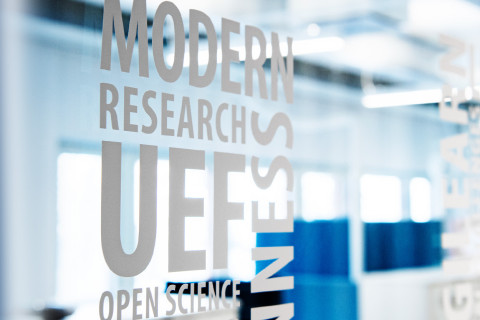Neuroscience research needs constant renewal and new partnerships to succeed, as Professor Mikko Hiltunen, the leader of the Neuroscience Research Community, pointed out in his opening words at the NEURO RC Seminar and Networking event on 29 November.
Recently appointed members of the Neuroscience Research Community (NEURO RC) at the University of Eastern Finland introduced their research at the event. Thanks to the competed PROFI6 funding granted by the Academy of Finland, NEURO RC has been able to make significant recruitments in the fields of multiomics data analysis, advanced gene and cell technology, integrative neuro-data sciences, and neuro-innovation.
Research Director Sami Heikkinen from UEF’s institute of Biomedicine encouraged research teams within the community to contact him for bioinformatic analysis services, consultation, and collaboration. He has a long history in multiomics projects especially in the field of metabolic diseases.
“Neuroscience is a more recent focus, but we are already carrying out analyses with NEURO RC teams using both local and FinnGen data. If the need arises, I’m interested in setting up a multiomic single-cell analysis pipeline,” Heikkinen said.
In the near future, he also plans to establish a research line focusing on the regulatory genetics of microglial cells.
University Researcher, Docent Juzoh Umemori from A. I. Virtanen Institute for Molecular Sciences presented his research project aiming to prevent the progression of Alzheimer’s disease by genetic manipulation of interneurons.
Umemori has previously shown how the use of antidepressants combined with optimal training reinstates brain plasticity by activating the receptor tyrosine kinase TrkB in parvalbumin-positive interneurons. Recently, he has developed optically activatable TrkB, optoTrkB, the activation of which in parvalbumin-positive interneurons changed network plasticity for a long time.
“Now my goal is to use the optoTrkB system to ameliorate both epileptic seizures and memory loss in Alzheimer’s disease mouse models.” AAV viral vectors will be tried to induce the mice with optoTrkB in non-invasive way in the near future.
Academy Research Fellow Dogu Baran Aydogan from A. I. Virtanen Institute for Molecular Sciences addressed the challenges and good practices of diffusion MRI based fiber tractography – the reconstruction of structural connectivity information from MRI images. According to Aydogan, tractography offers unique possibilities to study connectivity of the brain, in vivo. “My vision is to make effective tools for clinical applications.”
Aydogan has developed real-time applications of tractography for transcranial magnetic stimulation (TMS). The goal of his Academy project is to develop TMS into an effective approach in the treatment of depression. “TMS will be modified individually based on the feedback from fMRI and EEG images. At the moment we are building collaboration with Kuopio university hospital.”
Associate Professor Tero Montonen is the co-leader of the Neuro-impact and innovation research team at the UEF Business School. “Our vision is ‘Towards impact-driven research’.
“Our research focus is on several topics, some of them more focused on brain health research practice, and some more on innovation and societal impact, for example research commercialisation with innovations in the forms of new businesses, products, and services. Some topics address collaboration with stakeholders, such as university-industry relations, multistakeholder relationships and partnering with patients,“ Montonen said.
Research projects carried out in the Neuro-Innovation doctoral programme address many of the impact and innovation topics. The HIWE project led by the group involves different groups representing highly skilled international talent and will produce a collaborative governance model for policy innovation with increased societal impact. Another example of the group’s current research is planetary brain health.
“In future funding calls, NEURO RC is ready to establish new partnerships with UEF’s other strong research areas, which can complement research done in NEURO RC and accordingly, provide a clear added value in terms of scientific renewal. This ensures and strengthens the world-class neuroscience research conducted at UEF,” Hiltunen said.
PROFI6 funding also enabled the NEURO RC to invest in neuroethics research by recruiting Professor Kaijus Ervasti at the UEF Business School. He presented his research at an earlier seminar.
The onsite event was organized in collaboration with Kuopio Brain & Mind to promote local activities and networking related to neuroscience research.
Neuroscience Research Community (NEURO RC) at the University of Eastern Finland aims to understand the disease-specific and common molecular mechanisms underlying neurodegenerative diseases and epilepsy and to identify novel biomarkers and therapeutic approaches for their prevention and cure. Comprising 17 research groups, NEURO RC integrates biological neurosciences with data sciences, neuro-innovations, and neuro-ethics. Learn more and connect with NEURO RC:
Website: https://www.uef.fi/en/research-community/neuroscience-neuro
Twitter: https://twitter.com/UEFneuroscience



